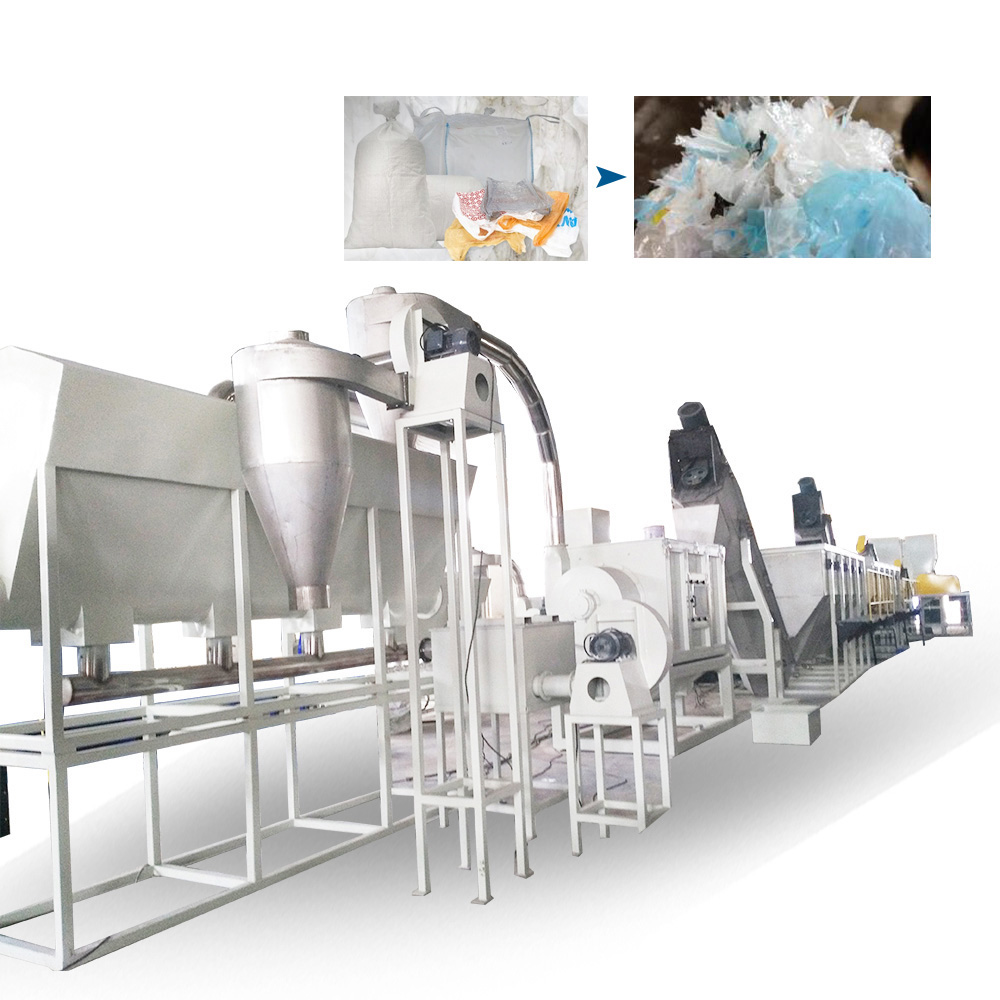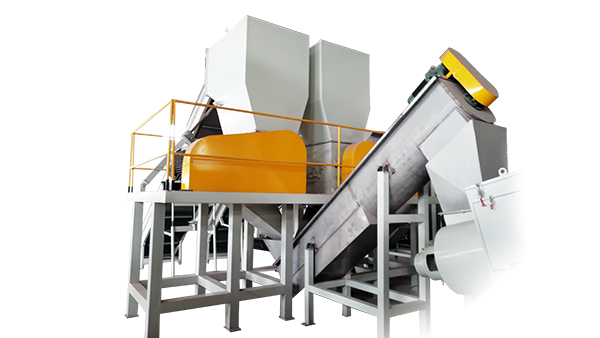© 2018 Zhangjiagang Sevenstars Machinery Co.,Ltd. All rights reserved. Site Map Designed by iwonder.cn privacy policy
Plastic recycling machine factory with 15 years experience
Plastic recycling machine factory with 15 years experience
Plastic waste is a key concern for environmentalists, governments and organisations, as vast majorities of plastics are disposed of in non-environmentally friendly ways, resulting in polluted oceans, overextended landfills and ecological damage. Thus, plastic recycling is critical to improving the environment and bettering waste management solutions.

Importance of Plastic Recycling
Recycling any material, where possible, is fundamental to the environment, however recycling plastic has specific benefits. Plastic can take hundreds of years to biodegrade, between 500-1000 years for some types, meaning it takes up landfill space and pollutes the environment for longer. Also, recycling plastic can conserve limited natural resources and energy; as plastic is made from oil, the more plastic that is recycled and the less that is made from raw materials, the more oil is conserved.
Unfortunately, plastic does not suit all eco-friendly disposal solutions. For example, not all plastic is widely recyclable and energy from incineration is not possible as burning plastics releases harmful gases.
How is Plastic Recycled?
Before being recycled, plastics are sorted according to their resin type, either manually or using mechanised automated processes, or even by colour. Following sorting, there are two main ways to recycle plastic; mechanical recycling, where plastic is washed, ground and melted, or chemical recycling, whereby plastic is broken down into monomers to form new polymers to be reused.
What Plastics Can be Recycled?
As many UK residents may know due to their kerbside collections, only a select few plastic types are widely collected and recycled from households. Aside from the commonly collected plastics and household waste, other plastics are recyclable, however they may require more specific action.
Overtime, due to environmental legislation and developments in recycling methods, more plastic types are being collected and recycled, which will only improve in coming years.
The numbers attributed to plastics are the plastic resin codes, which quickly show which type of plastic a product is. The numbers range from 1 to 7, with 7 being ‘other’.
The most commonly recycled plastics are:
· Polyethylene Terephthalate (PET) – water bottles and plastic trays
· High Density Polyethylene (HDPE) – milk cartoons and shampoo bottles
· Polypropylene (PP) – margarine tubs and ready-meal trays
Somewhat recyclable plastics (at specialist facilities) include:
· Polyvinyl Chloride (PVC) – piping
· Low Density Polyethylene (LDPE) – food bags
· Polystyrene (PS) – plastic cutlery
Incredibly hard to recycle plastics include crisp packets, salad bags, plastic wrap and more.
What Plastics Cannot be Recycled?
The general rule of thumb is, the lower the resin code, the more likely the plastic type is to be easily recyclable. Many plastic types can be recycled, even if the process is not widespread, however many plastics aren't recycled simply because they aren't easily recyclable.
The difference in the recyclability of plastic types can be down to how they are made; thermoset plastics contain polymers that form irreversible chemical bonds and cannot be recycled, whereas thermoplastics can be re-melted and re-molded. Examples of non-recyclable plastics include bioplastics, composite plastic, plastic-coated wrapping paper and polycarbonate. Well known non-recyclable plastics include cling film and blister packaging.
Businesses could check with comprehensive waste management providers which plastics are accepted for recycling, as this may vary.

Why aren't all Plastics Recycled?
There are many economical, environmental and technical reasons as to why a plastic may not be recycled, on top of the way it was made. Thin bags or films run the risk of clogging machines if not separated properly, hence why kerbside collections will not accept this mixed plastic recycling.
What Happens to Plastic that isn't Recycled?
Most commonly, landfill. However plastic waste can often be repurposed or reused, meaning it is diverted from landfill for a period of time, i.e. plastic bags can be reused multiple times before disposal.
Importantly, alternatives to landfill should be explored and plastic waste should not be instantly dismissed as useless, but as valuable.
If you are looking for a merchandise of plastic recycling machines, our company is a good choice for you. Please don't hesitate to contact us now!